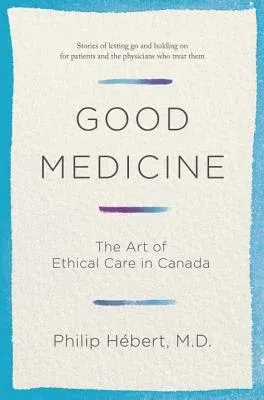Award-winning physician Philip C. Hébert creates a brave and intimate
portrait of the complex ethical imperatives at the heart of good
medicine: doctors do not have all the answers; patients must be heard;
and their needs, desires, fears, and experiences must be reflected in
how practitioners look after them.
Medical science continues to advance to previously unimagined heights in
its diagnostic and treatment capabilities. With these advances, however,
come unexpected ethical dilemmas for practitioners, patients, and
families. In Good Medicine, Dr. Hébert approaches these questions of
pressing and fundamental importance from the dual point of view of
acclaimed physician and long-time patient. With remarkable balance and
sensitivity, he explores a range of politically, constitutionally, and
ethically contentious matters, including assisted suicide, treatment
refusal and suspension, and the overall allocation of medical resources.
Hébert pairs his artful analysis with the real-life, often deeply moving
stories of those who have lived these challenges. Hébert offers piercing
and compassionate insight into the relationship between patients and
medical professionals, and guides readers towards the open and
empathetic communication needed to ensure good medicine for everyone.

